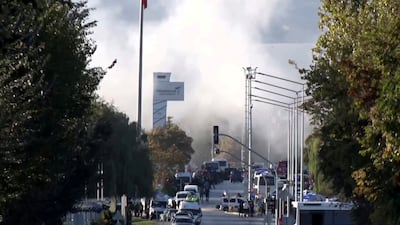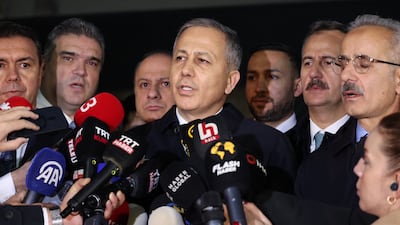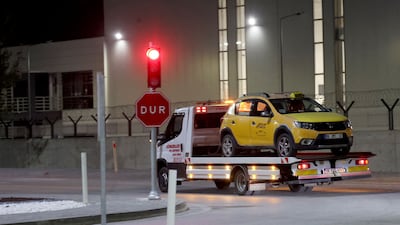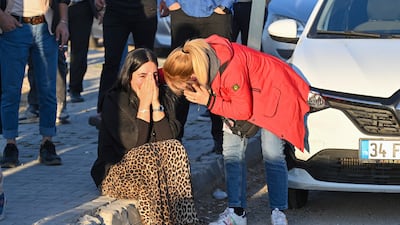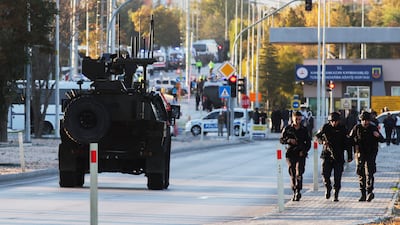The attack by Kurdish insurgents on one of Turkey’s largest aerospace firms came a day after the Minister of Industry and Technology Mehmet Fatih Kacir visited a major defence exhibition in Istanbul, and praised the country’s military manufacturing capabilities.
Turkey’s defence industry is one of President Recep Tayyip Erdogan's favourite topics: he often sings the praises of domestically-produced military technology to demonstrate that the country is increasingly less reliant on western partners for defence imports.
The attack took place while the President was out of the country, as he attended a meeting of the Brics alliance of countries in Kazan, Russia.
With the growth of Turkey’s defence industry comes an increasing risk of attacks by groups opposed to the government. Defence Minister Yasar Guler said the Kurdistan Workers’ Party (PKK) was responsible for the assault, which involved detonation of a bomb and a gun attack, killing at least six people and injuring 14 others.
Members of the PKK “do not get wiser,” the minister said in a statement carried by Turkish news agency Anka.
Mr Kacir said that the attack “will not make us give up our goal of a 'fully independent Turkey”.

Turkey has recently enjoyed a period of relative calm, following a wave of attacks involving car bombs and suicide belts in 2015 and 2016. Record numbers of tourists have visited Turkey this year and improved security has meant that the once off-limit parts of the country’s south and east have become hotspots.
Those previous attacks, mostly targeting crowded civilian areas or the security forces, were either claimed by ISIS or Kurdish militias, including the PKK.
The group has waged a 40-year insurgency against the Turkish state, which lists it as a terrorist organisation. Wednesday’s attack came days after a key partner in Mr Erdogan’s parliamentary alliance suggested that PKK leader Abdullah Ocalan, currently serving a prison sentence on a remote island in the Sea of Marmara south of Istanbul, could be released if he agreed to dissolve the insurgent group.
The attack on a defence and aerospace company’s premises represents an apparent shift for the PKK, which has previously focused its attacks on Turkish security forces. Their intent may have been to disrupt what officials are lauding as a key element in the growth of the country's economy.
Keen to show a tough stance over the fatal attack, officials were quick to respond. Justice Minister Yilmaz Tunc announced that Ankara’s chief prosecutor had opened an inquiry and Mr Erdogan held a telephone call with Nato Secretary General Mark Rutte, who said the alliance “stands with Turkey”.
There is criticism of Turkey’s Nato membership. Some Turks object to what they see as western influence over their country. But with its position between Russia, Ukraine, Syria, Iraq and Europe, Turkey is widely viewed as a key part of the alliance, and destabilising attacks on its territory are not something that the coalition wants to see.
Turkish security services frequently carry out raids across the country against alleged PKK cells and continues to bomb the group's positions across the border in northern Iraq. Even if diminished, Wednesdays’ events show that the risk of attacks on home soil is still alive.
